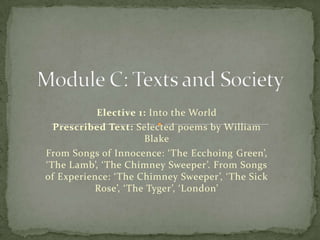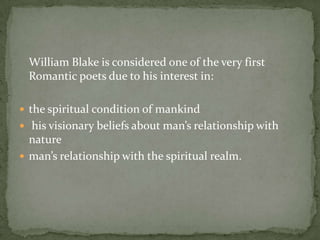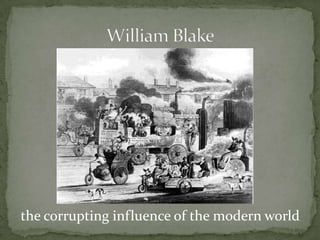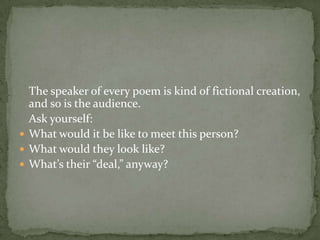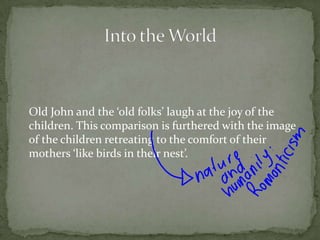This document outlines a study module focusing on selected poems by William Blake from both 'Songs of Innocence' and 'Songs of Experience.' It encourages analysis of themes such as the human soul, spirituality, and societal commentary while providing strategies for understanding and interpreting poetry. Additionally, it emphasizes Blake's influence as a romantic poet and explores the context of his work during significant historical changes in England.
